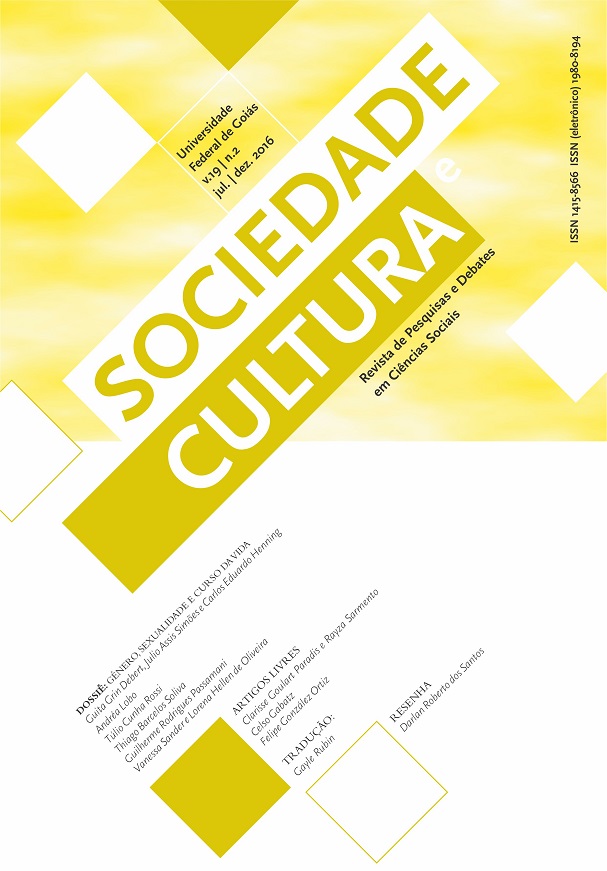Kairós e Carnaval: curso da vida, regimes de visibilidade e condutas homossexuais no Pantanal de Mato Grosso do Sul
DOI:
https://doi.org/10.5216/sec.v19i2.48670Abstract
Neste artigo, apresento a particularidade do kairós do carnaval em Corumbá, entendendo-se por kairós um tempo especial, tempo de oportunidades, aquele que permite a construção de algo diferente do ordinário. A partir de uma pesquisa etnográfica realizada entre 2012 e 2014 na região do Pantanal de Mato Grosso do Sul, destaco a importância do carnaval para as pessoas com condutas homossexuais, especialmente as mais velhas, que compuseram a minha investigação. Primeiramente, atendo-me às noções de cronos e kairós, mostro como o carnaval constitui um tempo de protagonismos. Logo em seguida, destaco como ele é compreendido por meus interlocutores e pela literatura da área. Por fim, analiso as lembranças que, no imaginário da região, constroem o carnaval como o lugar das “bichas” e levam a uma associação do tempo da festa com a juventude.Downloads
Download data is not yet available.
Downloads
Published
2017-08-11
How to Cite
RODRIGUES PASSAMANI, Guilherme. Kairós e Carnaval: curso da vida, regimes de visibilidade e condutas homossexuais no Pantanal de Mato Grosso do Sul. Sociedade e Cultura, Goiânia, v. 19, n. 2, 2017. DOI: 10.5216/sec.v19i2.48670. Disponível em: https://revistas.ufg.br/fcs/article/view/48670. Acesso em: 9 feb. 2026.
Issue
Section
Thematic Dossier
License
Authors who publish in this journal agree to the following terms:
- Authors retain the copyright and grant the journal the right of first publication, the work being simultaneously licensed under the Creative Commons Attribution License, which allows the sharing of the work with acknowledgment of authorship and of the initial publication in this journal;
- Authors are authorized to enter into additional contracts separately, for non-exclusive distribution of the version of the work published in this journal (eg, publishing in an institutional repository or as a book chapter), with acknowledgment of authorship and of the initial publication in this journal;
- Authors are allowed and encouraged to post and distribute their work online (eg, in institutional repositories or on their personal page) at any point before or during the editorial process, as this can bring productive change as well as increases the impact and the citation of the published work (see O Efeito do Acesso Livre).



